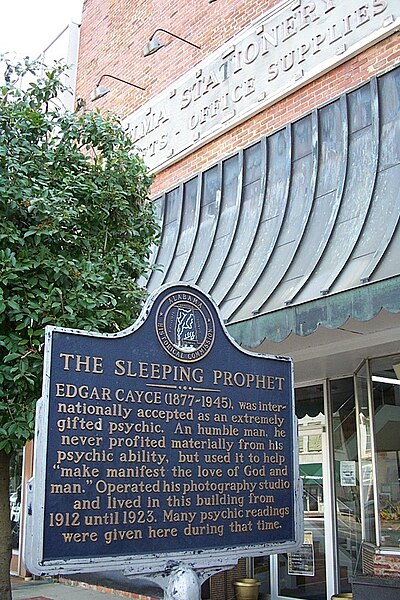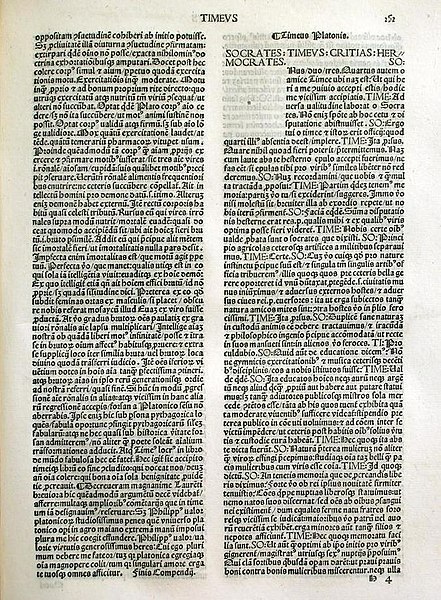Edgar Cayce was an American attributed clairvoyant who claimed to speak from his higher self while in a trance-like state. His words were recorded by his friend, Al Layne; his wife, Gertrude Evans, and later by his secretary, Gladys Davis Turner. During the sessions, Cayce would answer questions on a variety of subjects such as healing, reincarnation, dreams, the afterlife, past lives, nutrition, Atlantis, and future events. Cayce, a devout Christian and Sunday-school teacher, said that his readings came from his subconscious mind exploring the dream realm, where he said all minds were timelessly connected. Cayce founded a non-profit organization, the Association for Research and Enlightenment, to record and facilitate the study of his channeling and to run a hospital. Cayce is known as "The Sleeping Prophet", the title of journalist Jess Stearn's 1967 Cayce biography. Religious scholars and thinkers, such as author Michael York, consider Cayce the founder and a principal source of many characteristic beliefs of the New Age movement.

Cayce c. 1910
Building (second from left) in downtown Selma, Alabama, where Cayce lived and worked from 1912 to 1923
Historical marker in front of the building
The Cayce Hospital in 2006
Atlantis is a fictional island mentioned in Plato's works Timaeus and Critias as part of an allegory on the hubris of nations. In the story, Atlantis is described as a naval empire that ruled all Western parts of the known world, making it the literary counter-image of the Achaemenid Empire. After an ill-fated attempt to conquer "Ancient Athens," Atlantis falls out of favor with the deities and submerges into the Atlantic Ocean. Since Plato describes Athens as resembling his ideal state in the Republic, the Atlantis story is meant to bear witness to the superiority of his concept of a state.
A fifteenth-century Latin translation of Plato's Timaeus
A Faroe Islands postage stamp honoring Janus Djurhuus's poem "Atlantis"
François de Nomé's The Fall of Atlantis
Nicholas Roerich's The Last of Atlantis








